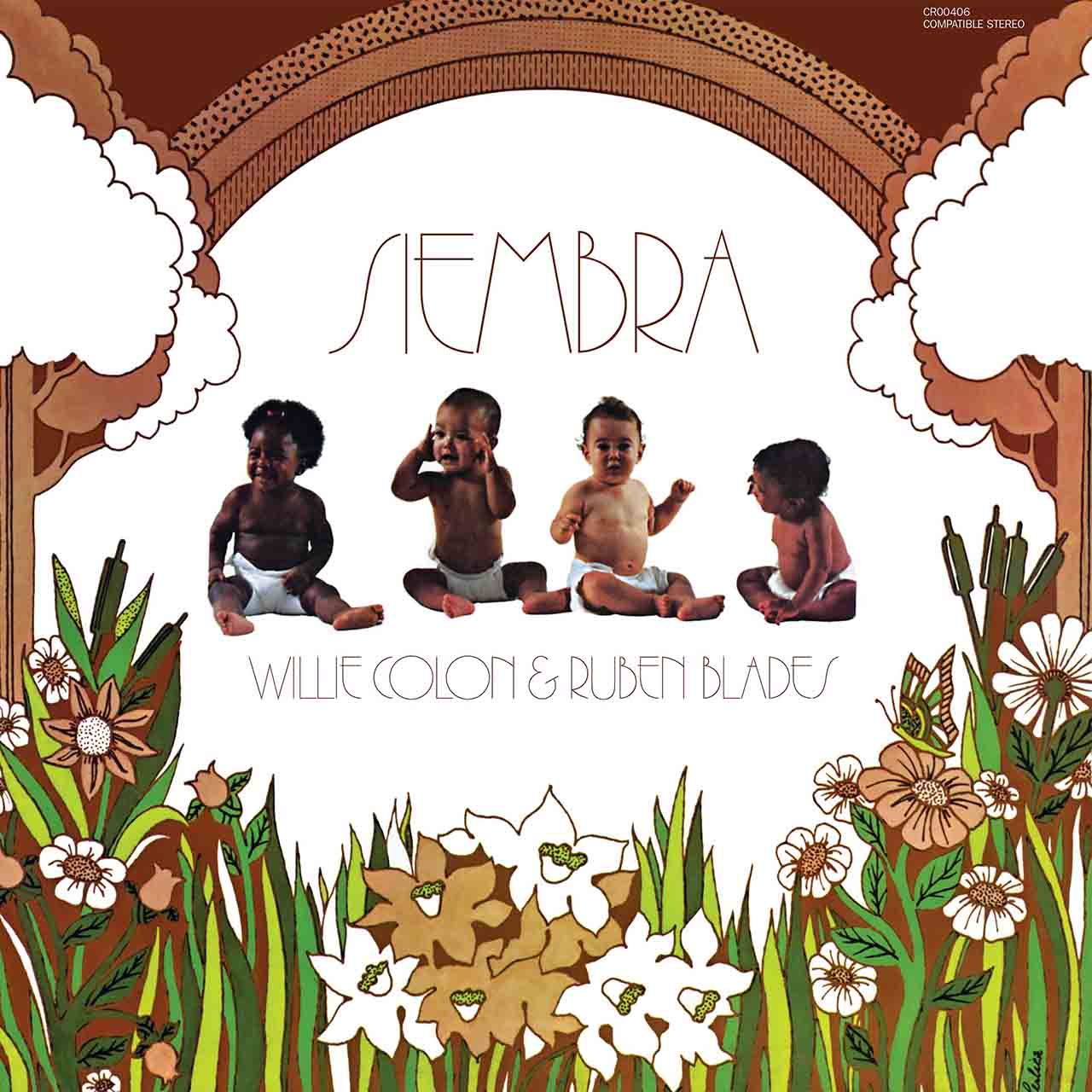One of the pivotal works of the 1970s, Willie Colón and Rubén Blades’ Siembra has been described as nothing less than the greatest salsa album of all time, often likened to a Latin Sgt. Pepper’s for its groundbreaking songwriting and kaleidoscopic production. Another favorable comparison, however, may be What’s Going On. Like Marvin Gaye’s masterpiece, Siembra is explicitly and exquisitely imbued with social commentary and humanism, and required its record label’s leap of faith in order to even see release. Having reputedly preview-tested the LP for a group of influential radio jocks who unanimously projected its doom, Fania Records was hesitant to unleash Colón and Blades’ ambitious conceptual tour de force on an unsuspecting audience. The label’s fears would prove entirely unfounded. Siembra wasn’t just a critical and commercial smash – selling millions worldwide – it would remain Latin music’s best-selling album for decades after its original release.
Listen to Willie Colón and Rubén Blades’ Siembra now.
Upon revisiting this commanding classic, it’s tough to decipher what all the early handwringing was about. The Colón-Blades combo had already exhibited an affinity for alternately poignant and sardonic commentary on the struggles of the underclass on their inaugural album together, 1977’s Metiendo Mano (the former’s first since parting ways with longtime vocal partner Hector Lavoe). Siembra fully embraces this direction, brazenly supplementing its messages with precise arrangements and musicianship, and stylistic curveballs that somehow never miss their mark. “Plástico” sets the tone immediately, commencing with a deliciously deceptive disco-funk groove before subverting its Saturday Night Fever-era tease and launching into a salsa number in which Blades claps back at a life lived solely for superficialities. The album’s Kurt Weill-inspired centerpiece, “Pedro Navaja,” deftly orchestrates police sirens, shifting melodic passages, and a sarcastic West Side Story nod (“I like to live in America”) against Blades’ epic multi-verse narrative detailing a tale of two street characters, their violent ends, and a perfectly wry moral: “La vida te da sopresas” (“Life gives you surprises”).
Siembra’s most profound achievement, though, is Blades’ compositional sophistication, having written all but one of the album’s seven expansive tracks. Being of mixed Colombian and Cuban heritage, and born and raised in Panama before settling in New York and teaming with the Bronx-born Nuyorican Colón, Blades was uniquely qualified to transcend nationality and speak to a vision of a unified Latin American voice. Thus “Maria Lionza” – a loving homage to the Venezuelan goddess of nature, peace, and harmony – is instilled with a palpable spiritual pride. Propelled by striking strings and chorus harmonies, the urgent and mesmerizing “Siembra” (“Sowing”) finds Blades imploring, “Usa la conciencia latino/ No la dejes que se te duerma/ No la dejes que muera” (“Use the Latin conscience/ Do not let her fall sleep/ Do not let her die”) and cites Ramón Emeterios Betances, father of the Puerto Rican independence movement: “Nunca olvides a Betances/ ‘En la unión está el futuro’” (“Never forget Betances/ ‘In the union is the future’”).
Even the lone song Blades didn’t write, Johnny Ortiz’s “Ojos,” addresses a shared perspective: “De America Latina, ojos llenos de verdad” (“From Latin America, eyes full of truth”). Fania had long-framed salsa as a Pan-Latin genre; Colón and Blades took it well beyond merging musical forms and marketing, tapping into the soul of a people. As Blades once observed, “Salsa is the folklore of the city. But not of one city but all cities in Latin America.” Siembra’s power still stems from this compassion.


